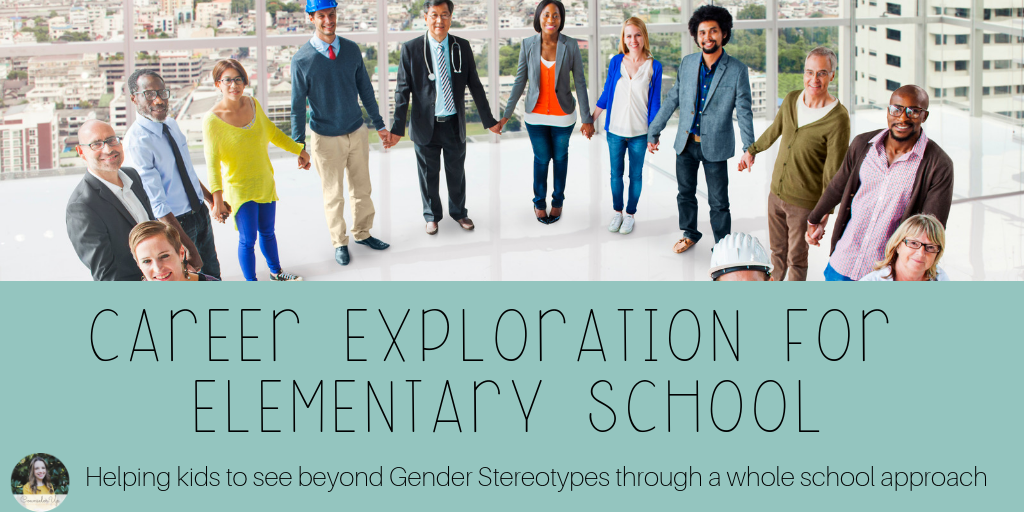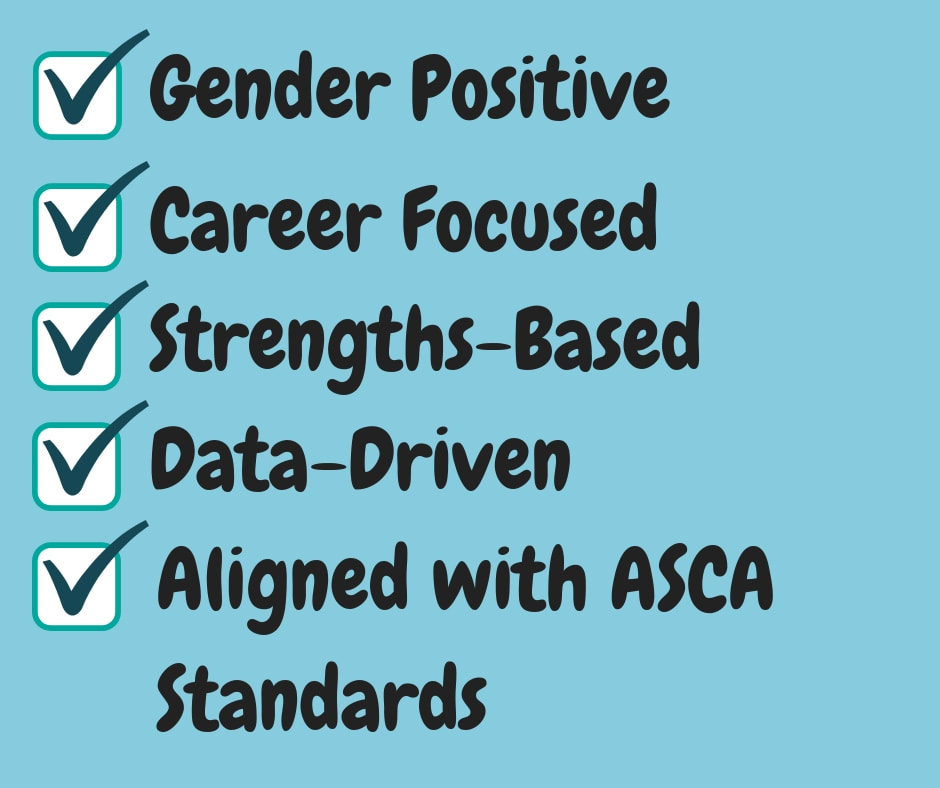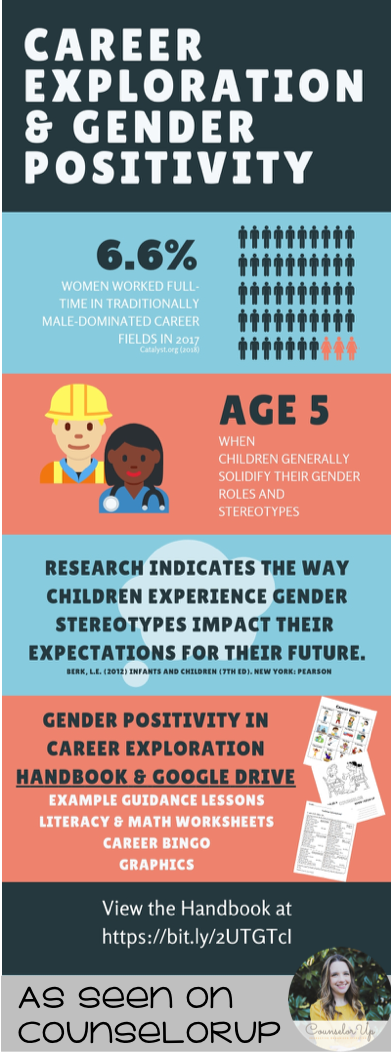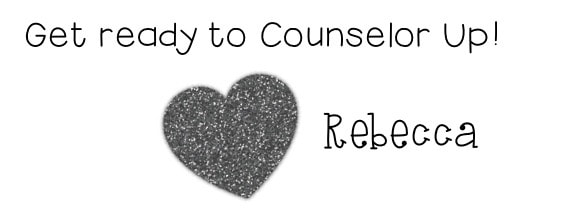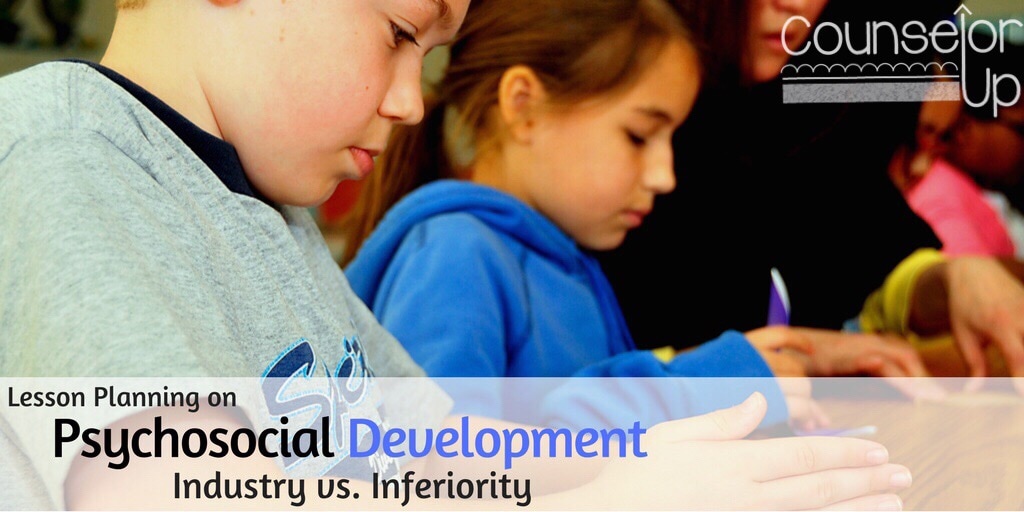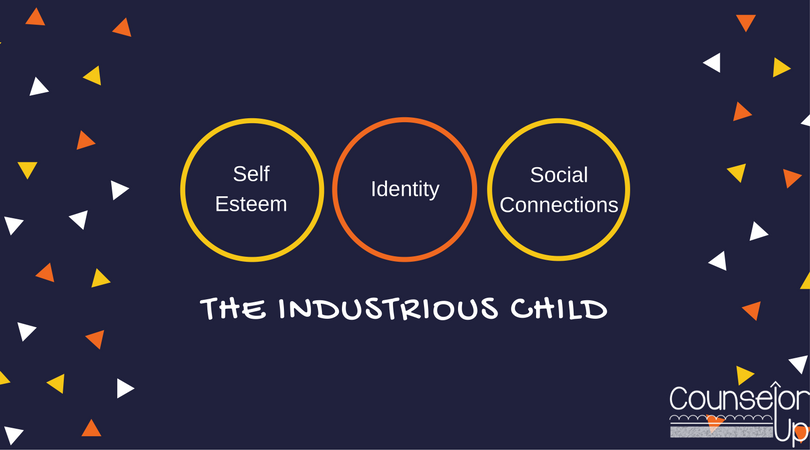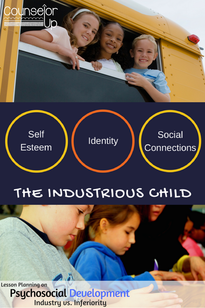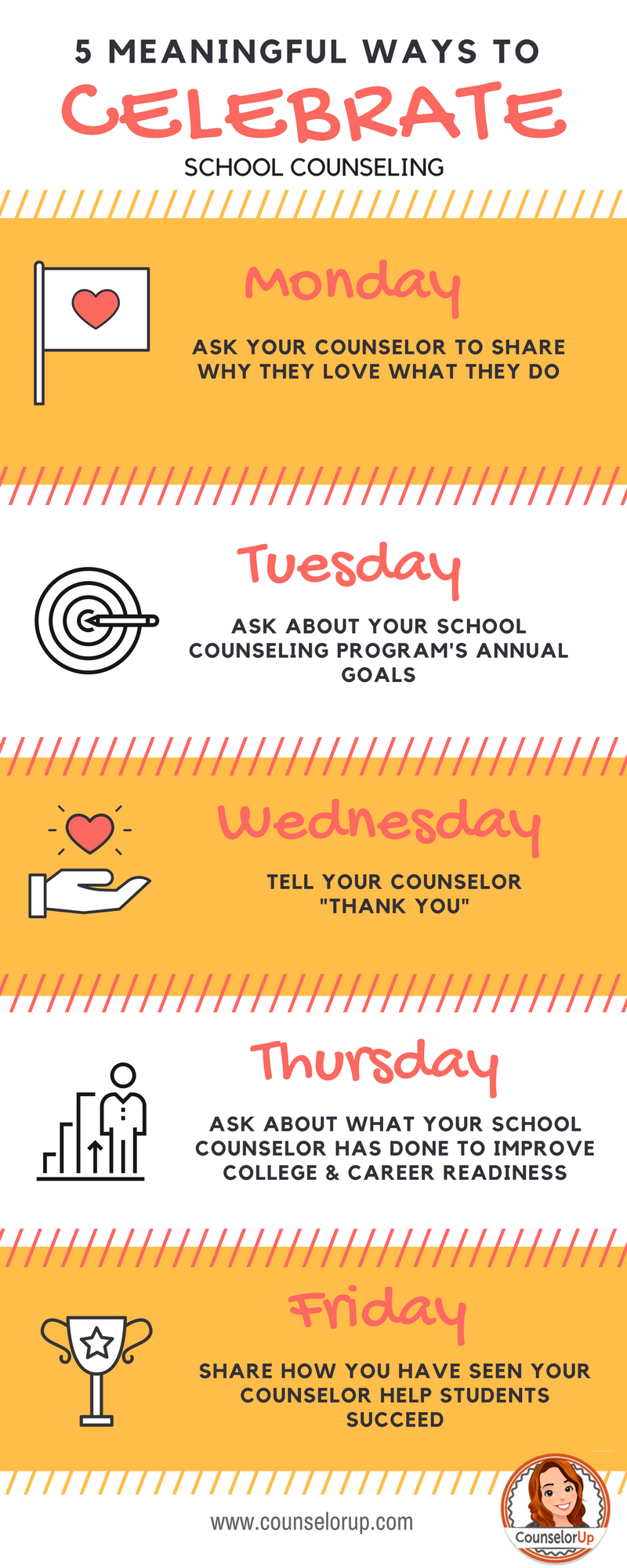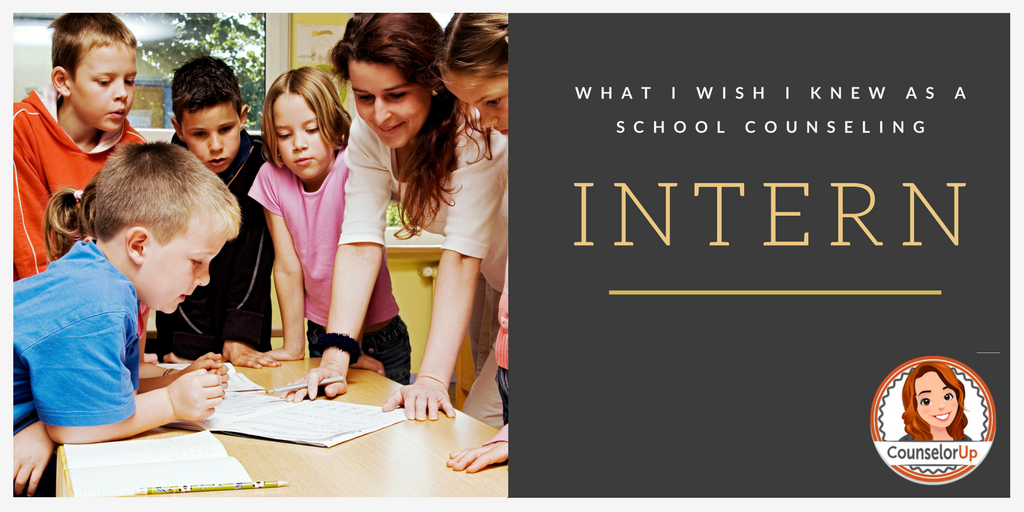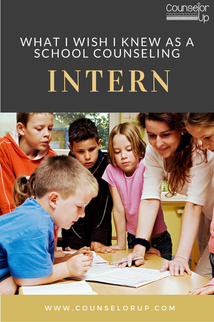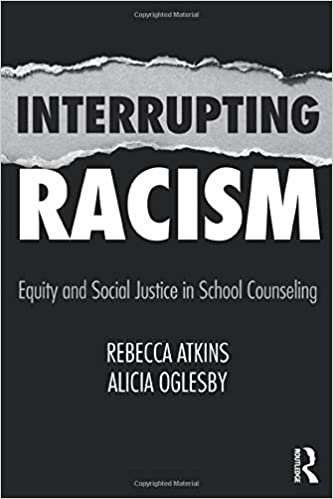We created a career exploration toolkit with a variety of relevant resources for school staff including a lesson plan unit on career development and gender positivity that explores career interests, strengths, understanding, and goal setting. Other resources provided in the drive include an example math and literacy worksheet using gender-neutral or gender non-conforming questions involving career choices, in-class games, research and additional references, and poster graphics. Additionally, the Career Bingo game and coloring sheets include representation for counseling as a profession. By embracing this school-wide initiative, teachers, administrators, and other school staff can play a supportive role in each student’s holistic development.
|
Today I am so happy to welcome Katie, Julia, and Paige to share a series of career exploration lessons for elementary school. These ladies are grad students in my home state and I am thrilled for them to share their work with you. I love seeing our next generation of school counselors ready to make a difference. Amazing work! Hi! We are Katie James, Julia Jefferson, and Paige Alven, school counselors-in-training at the University of North Carolina at Greensboro. As we began our practical experiences at elementary schools this semester, we saw gender stereotypes playing out in the classroom. Many girls wanting to be nurses and ballerinas, and many boys wanting to be police officers and construction workers. Additionally, no students seemed to know about counseling as a profession. When making lesson plans, we searched for resources such as videos, coloring pages, and storybooks that provided examples of gender diversity in career fields. We noticed there was a lack of female representation in career exploration materials for traditionally male-dominated fields and vice-versa. Research has shown that the way in which a child experiences gender-role norms and stereotypes influences how they experience the world, interact with others, and view their future. With children learning about and experiencing gender stereotypes beginning in preschool, we became determined to create resources for elementary school counselors that celebrate both interest and skill no matter the gender. By providing examples that defy traditional gender roles, the counseling lessons can help challenge gender biases and stereotyping and therefore increase academic and career readiness in all fields for all genders. The lessons align with ASCA Mindsets and Behaviors including increasing the sense of belonging in the school environment and using student’s abilities to their fullest to achieve high-quality results and outcomes. Through the use of counseling lessons in conjunction with academic worksheets, career games, and data, the goal of this campaign is to cultivate gender positivity surrounding career development for school-age children and provide resources that feature counseling as a career option. We created a career exploration toolkit with a variety of relevant resources for school staff including a lesson plan unit on career development and gender positivity that explores career interests, strengths, understanding, and goal setting. Other resources provided in the drive include an example math and literacy worksheet using gender-neutral or gender non-conforming questions involving career choices, in-class games, research and additional references, and poster graphics. Additionally, the Career Bingo game and coloring sheets include representation for counseling as a profession. By embracing this school-wide initiative, teachers, administrators, and other school staff can play a supportive role in each student’s holistic development. Thank you Katie, Julia, and Paige for sharing your work! Y'all this is 57 pages of lessons, resources, and materials for you. They have done a great job and I know that others will want to use these great tools. I am so impressed with their work and commitment to school counseling. What do you do for career exploration in your school?
School counselors and educators talk a lot about "developmentally appropriate" instruction. The ASCA Mindsets and Behaviors mention development 11 times in a 2 page document. Our NC Evaluation Standards state "applies theories and research about human development and student learning in counseling programs and services deisgned o enhance student success." But what does that actually mean? I am happy to introduce Syrenna Kononovitch from Online Counseling Programs to share lesson planning tips using psychosocial developmental theories. Syrenna is the editor and co-creator of the School Counselor ToolKit - a free supportive resource on all things school counseling. I think you'll love her post because not only does she dive deeper into developmentally appropriate lesson planning but she includes lots of links to great resources! Welcome Syrenna :) The theory of psychosocial development from infancy into adulthood proposed by Erik Erikson illustrates the psychosocial crisis of industry vs. inferiority in children from age five to twelve. During this development, children begin to learn to independently work and look to their teachers as role models. Friends become a larger influence in a child’s life as they may feel they need to win approval from others by demonstrating skills valued by peers. When children are reinforced in their competencies, they begin to feel industrious in their initiatives and thus confident in their abilities to achieve goals. If restrictions are placed, they will begin to feel inferior and doubtful of their own abilities. Maintaining a balance between the two is key and learning does require some failure. School counselors have surely seen both sides - the formation of a grandiose personality and students who feel inferior. School counselors can help to shape students' strengths, weaknesses, and behavior with counseling lesson plans on self-esteem, identity formation, and the development of social relationships. Self EsteemThe Missouri Department of Education provides school counselors with lesson plans specific to identity develop and increasing self-esteem for children in K-5 on identification of
Identity DevelopmentEmpowering students to continue to grow their own identity can be considered a staple to the school counseling profession. By integrating growth development and identity formation lessons into groups, individual sessions, and classroom guidance plans, students will be able to develop a positive sense of self. Using growth mindset lesson plans like My Monster Has a Growth Mindset can guide students in discovering their strengths and resilience by promoting positive alternative behaviors. Character education also provides students with an insight to positive attributes that they can take with them long after school is over. Kids of Character Posters can be used to have students think about what each trait means to them and why it’s a positive attribute to have. Character.org provides educators and school counselors with books to reference and suggested lesson plans on comparing character traits, determining what is negative and positive character, and illustrating their current positive attributes. Social RelationshipsWhen developing positive interpersonal relationships with others, students in the psychosocial industry vs inferiority development stage often turn to their peers as a first source of acknowledgment and acceptance. Students may experience jealousy, conflict, and engage in negative behaviors to gain the trust of their peers. Lesson plans that involve the social acceptance of oneself and others promote caring and kindness that are essentially the foundation for a child’s moral development. The 101 Ways to Teach Social Skills workbook provides lesson plans for aspects of social development on communication, being a part of a group, expression, caring about self and others, problem solving, standing up for yourself, and managing conflict. Beginning on page 75, the authors aim to provide planning on teaching skills such as empathy, positive social communication, helpfulness, respect, and making friends. Through these three components, school counselors can provide their students with the support and tools they need to become confident learners, friends, and members of society and school. Thanks for joining us today Syrenna! The best part? You, awesome readers, are already doing this work! Now you have the grad-school refresh to remind you the why behind the excellent work you do. What is your favorite resource or idea to support industry vs inferiority?
National School Counseling Week is coming up next week. I can't wait to celebrate. I plan to keep up with ASCA's Photo Challenge. You can also read about what I've done in my schools or laugh at some funny memes. What are some meaningful ways you celebrate school counseling week?
Recently, I had the opportunity to speak to a group of incoming practicum students at a local university. I asked the counselors in my district to tell me what they wish they had known about being a school counselor. I also shared some tips on a successful internship year. We ended up having a great discussion and I realized (remembered) how little I knew about school counseling when I was first starting out too. I wish I had known…
Top 3 tips for a successful internship year:Be On Time Schools run like clockwork. When you're late or you don't arrive when expected, you can really throw off everyone's day. Be there when you say you will and stay until you're done. Be Proactive School counselors are incredibly busy - don't wait for your supervisor to tell you to do something. Think ahead and start making plans for what you can be doing to stay ahead of the game. Act Like You Work There Dress professionally, be courteous, help others out - do what great employees and coworkers do. You really aren't volunteering, the school is generously offering to give you job experience. What are your top tips for interns? If you are hosting an intern this year, check out my 5 tips for hosting an intern.
You finally finished grad school and find your first job. Everything is going great and then you get your first student loan payment. Womp Womp. Educators are certainly pretty low on the salary totem pole and yet we are required as school counselors to hold a masters degree. Luckily, there are a few programs that might help you out.
Before we get started, you need to know what type of loans you have: private, federal, Perkins, Stafford, etc. It's also helpful to know how many payments you've made and whether you school is classified as a low-income school. Public Service Loan Forgiveness
The Public Service Loan Forgiveness is probably the most well known loan forgiveness program. In this program, you make 120 payments on your loan and then the remaining balance is forgiven. It covers a broad range of loan types and is especially good for people who couldn't make their full loan payments and participated in something like anIncome-Based Plan (a plan where you make smaller payments capped at 10-15% of your income) so that they have a balance after 10 years. This program is available for public employees and 501(c)(3) non-profit employees.
Teacher Cancellation
The teacher cancellation program is for those who have Perkins Loans (for low income students). All kinds of school personnel, including school counselors, can have their loans cancelled through this program. The program cancels a portion of your loan for each year that you work in a low-income school or a non-profit private school, up to 100 percent.
Teacher Loan Forgiveness
Teacher Loan Forgiveness does not include school counselors in their definition of teacher (oh, politics), however, I am including in case you might have been a teacher before you became a school counselor. There are parameters on the type of loan you can have and the years that you received the loan but can add up to $17,500 in loans cancelled. You can check out the website here.
So there it is! Rules and availability of funds change quickly so make sure to check out studentaid.ed.gov for the latest. If it seems overwhelming, it can be helpful to contact the Student Aid number, email, or chat to talk about your situation. I have heard that they are very helpful!
Good luck in your pursuit of student loan peace and... |
Rebecca AtkinsWelcome to my blog where I talk about all things school counselor and encourage others to Counselor Up! This website uses marketing and tracking technologies. Opting out of this will opt you out of all cookies, except for those needed to run the website. Note that some products may not work as well without tracking cookies. Opt Out of CookiesInterrupting Racism: Equity and Social Justice in School CounselingLinks may be affiliate links. If you link and purchase, I may receive compensation at no additional cost to you. Thanks for your support of Counselor Up.
Categories
All
Archives
July 2021
|

